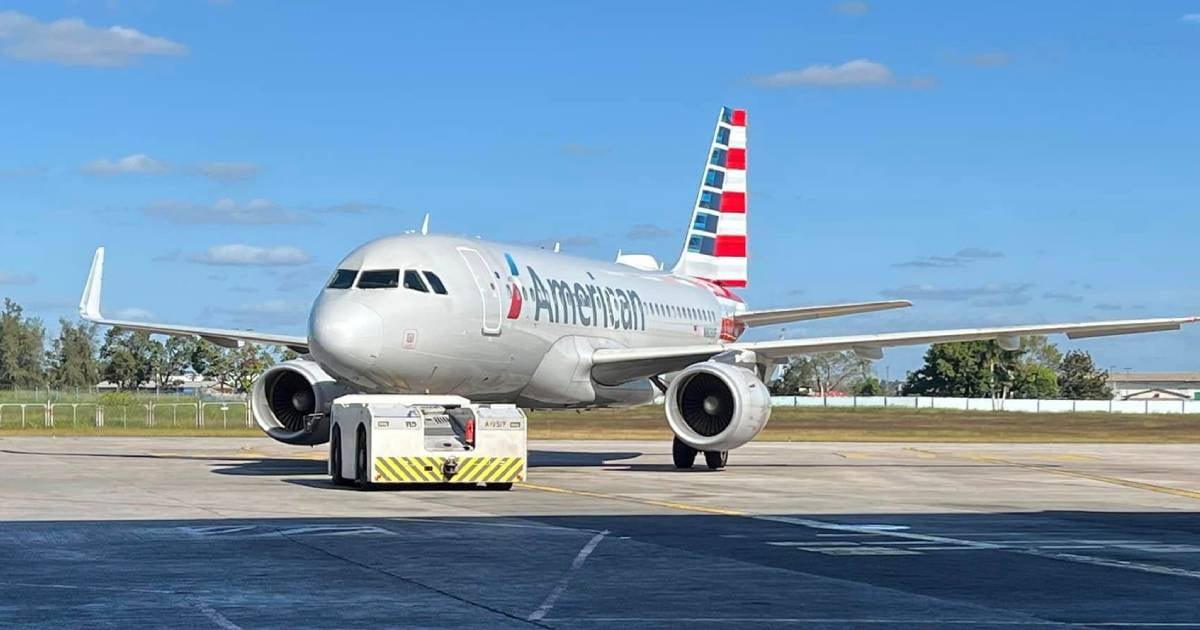U.S. airlines operating flights to Cuba are now facing a new wave of uncertainty following President Donald Trump's recent immigration announcement, which restricts entry into the United States for citizens from several nations, including Cuba. The executive order, signed on June 4 and set to take effect on Monday, June 9, doesn't directly ban flights. However, it significantly threatens the viability of many routes. If Cubans are unable to enter the U.S. with the most common visa types, demand for flights will decrease, potentially forcing airlines to cut back on frequencies or halt operations, as witnessed in 2023 with JetBlue and Delta.
An analysis by Cirium, cited by Forbes, revealed that over 12,800 flights were scheduled this year between Cuba and the U.S., offering more than 2 million seats, especially during peak months like March and December. Yet, this landscape might drastically shift if the new immigration policy is fully enacted. American Airlines, with nearly 9,300 projected flights in 2025, is the most vulnerable. It operates routes from Miami to six Cuban cities, including Havana. Delta, Southwest, and United Airlines also have limited routes to Cuba but might need to reassess their operations if demand plummets, as it did in 2023.
Although these restrictions have not yet resulted in immediate changes to flight offerings, the anxiety is palpable. For many Cubans, the flights connecting Havana with Miami or Houston are more than just travel—they symbolize a bridge to family, a reunion, and a chance for a new life. The new measures are reminiscent of 2023's events when JetBlue completely suspended its Cuba flights, and Delta and United reduced their operations due to regulatory changes that subdued demand. If Trump's policy continues to limit visa access for Cubans, a similar scenario could unfold by 2025.
Currently, airlines are adopting a cautious stance. Yet, history indicates that when immigration restrictions tighten, flights are often the first casualties.
Concerns for December Travel
December traditionally witnesses the highest travel volume between Cuba and the U.S., as thousands of families plan holiday reunions. With over 183,000 seats planned, airlines like American Airlines and Southwest are holding high expectations. However, under Trump's immigration policy, many of these seats might remain unoccupied. For Cubans on and off the island, the message is clear: immigration policy remains a volatile issue that directly impacts their lives. Every announcement, restriction, and canceled flight feels like a new hurdle on an already challenging path.
Context and Potential Implications
The measure directly affects holders of B-1/B-2 (tourism and business), F, M, and J (students and exchange) visas, threatening to disrupt the air travel flow between the island and the United States and potentially pausing family reunification dreams for countless Cubans. The text signed by Trump on June 4 justifies excluding Cubans by labeling Cuba a "state sponsor of terrorism" and citing a high visa overstay rate by island travelers.
Specifically, the measure suspends entry for Cuban citizens under B-1/B-2, F, M, and J visas and instructs consular officers to curtail the validity of any other non-immigrant visa granted to Cuban citizens. The White House claims the new restrictions include exceptions for legal permanent residents, individuals with current visas, or those whose entry is deemed of national interest, but the practical implications remain uncertain. This decree echoes Trump's first-term "travel bans," widely criticized for their disproportionate impact on vulnerable communities and perceived discriminatory nature.
Frequently Asked Questions about Flights and Immigration Policies
How will Trump's immigration policies impact flights to Cuba?
The policies may lead to decreased demand for flights as restrictions limit the ability of Cubans to enter the U.S. This could force airlines to reduce flight frequencies or cancel routes altogether.
Which airlines could be most affected by these changes?
American Airlines, with a significant number of scheduled flights to Cuba, is particularly exposed. Other airlines like Delta, Southwest, and United Airlines could also need to reassess their operations.
What are the potential consequences for Cubans with the new visa restrictions?
The restrictions might hinder family reunifications and disrupt the travel plans of many Cubans, affecting their chances to visit or start new lives in the U.S.
